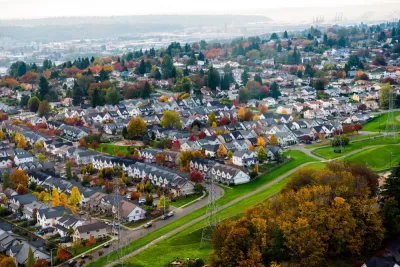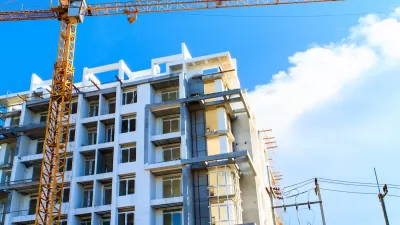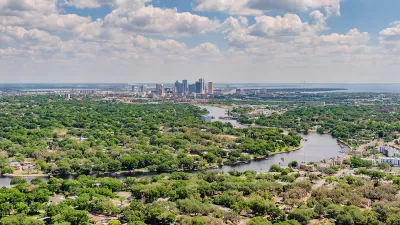The Puget Sound region could benefit from zoning tweaks that would encourage more transit-oriented development and ‘gentle’ density increases, new research finds.

The Urban Institute’s Yonah Freemark, Lydia Lo, Olivia Fiol, Gabe Samuels, and Andrew Trueblood analyzed how changes to Seattle’s zoning code could stimulate more housing production, encourage transit-oriented development, and alleviate the region’s housing shortage.
According to the authors, when it comes to regional transit, “About one third of station-adjacent land is zoned for only single-family homes; almost 50 percent requires at least one parking spot per unit. Both zoning restrictions add to housing costs, making new construction more difficult and new homes more expensive.”
But there is an opportunity for the Puget Sound region, the authors argue. “With housing construction slowing in recent decades, policymakers can implement new land-use policies locally or statewide to accelerate construction, add space for residents, and reduce housing costs.”
The authors highlight key reforms that could help accelerate housing production in Seattle and elsewhere, including: permitting more high-density housing; allowing ‘missing middle’ housing types; and promoting two- to four-unit buildings to gently increase density and provide more housing options. “We also studied a fourth reform—legalizing apartment units on land now zoned only for commercial space—but found that it would have a limited impact on housing overall, because commercial-only zoning is rare in most of the areas near transit in the region.”
FULL STORY: Making Room for Housing near Transit: Zoning's Promise and Barriers

Planetizen Federal Action Tracker
A weekly monitor of how Trump’s orders and actions are impacting planners and planning in America.

Map: Where Senate Republicans Want to Sell Your Public Lands
For public land advocates, the Senate Republicans’ proposal to sell millions of acres of public land in the West is “the biggest fight of their careers.”

Restaurant Patios Were a Pandemic Win — Why Were They so Hard to Keep?
Social distancing requirements and changes in travel patterns prompted cities to pilot new uses for street and sidewalk space. Then it got complicated.

Albuquerque Route 66 Motels Become Affordable Housing
A $4 million city fund is incentivizing developers to breathe new life into derelict midcentury motels.

DC Area County Eliminates Bus Fares
Montgomery County joins a growing trend of making transit free.

Platform Pilsner: Vancouver Transit Agency Releases... a Beer?
TransLink will receive a portion of every sale of the four-pack.
Urban Design for Planners 1: Software Tools
This six-course series explores essential urban design concepts using open source software and equips planners with the tools they need to participate fully in the urban design process.
Planning for Universal Design
Learn the tools for implementing Universal Design in planning regulations.
Heyer Gruel & Associates PA
JM Goldson LLC
Custer County Colorado
City of Camden Redevelopment Agency
City of Astoria
Transportation Research & Education Center (TREC) at Portland State University
Camden Redevelopment Agency
City of Claremont
Municipality of Princeton (NJ)





























